Article not found
This article is no longer available. But don't worry—we've gathered other articles that discuss the same topic.
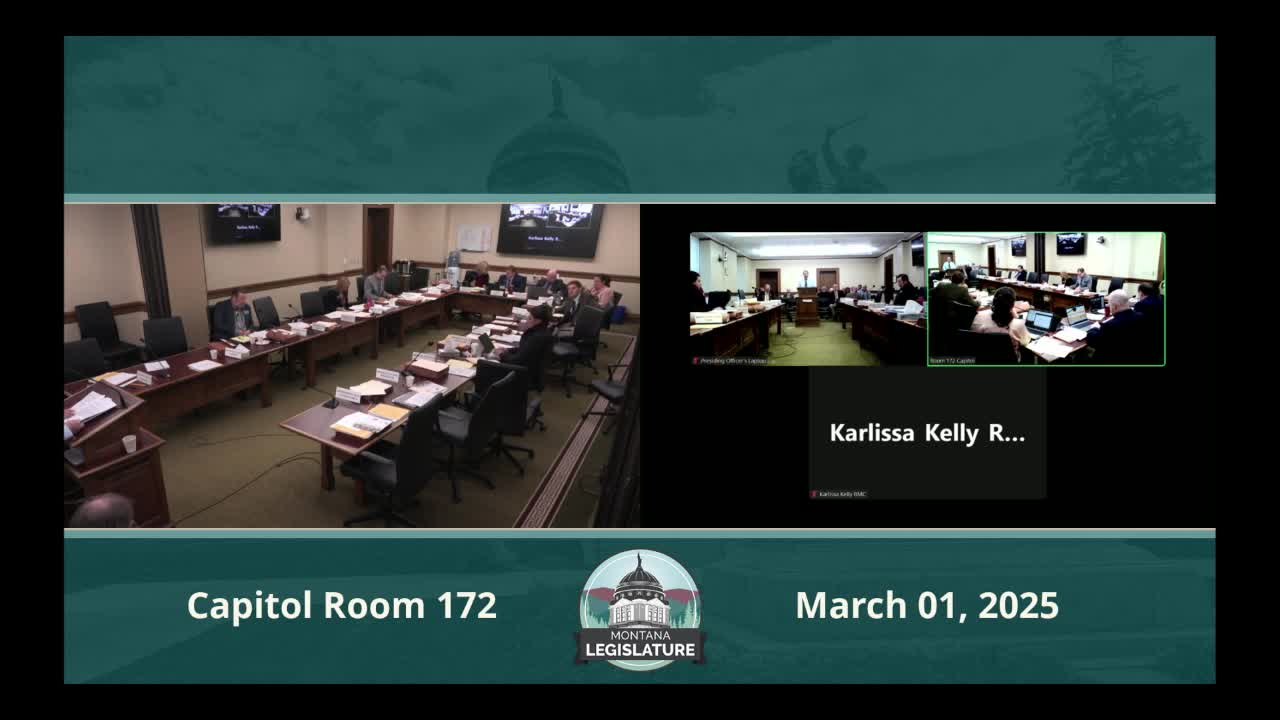
Sponsor seeks to remove national‑association membership restriction for massage‑therapy board seats
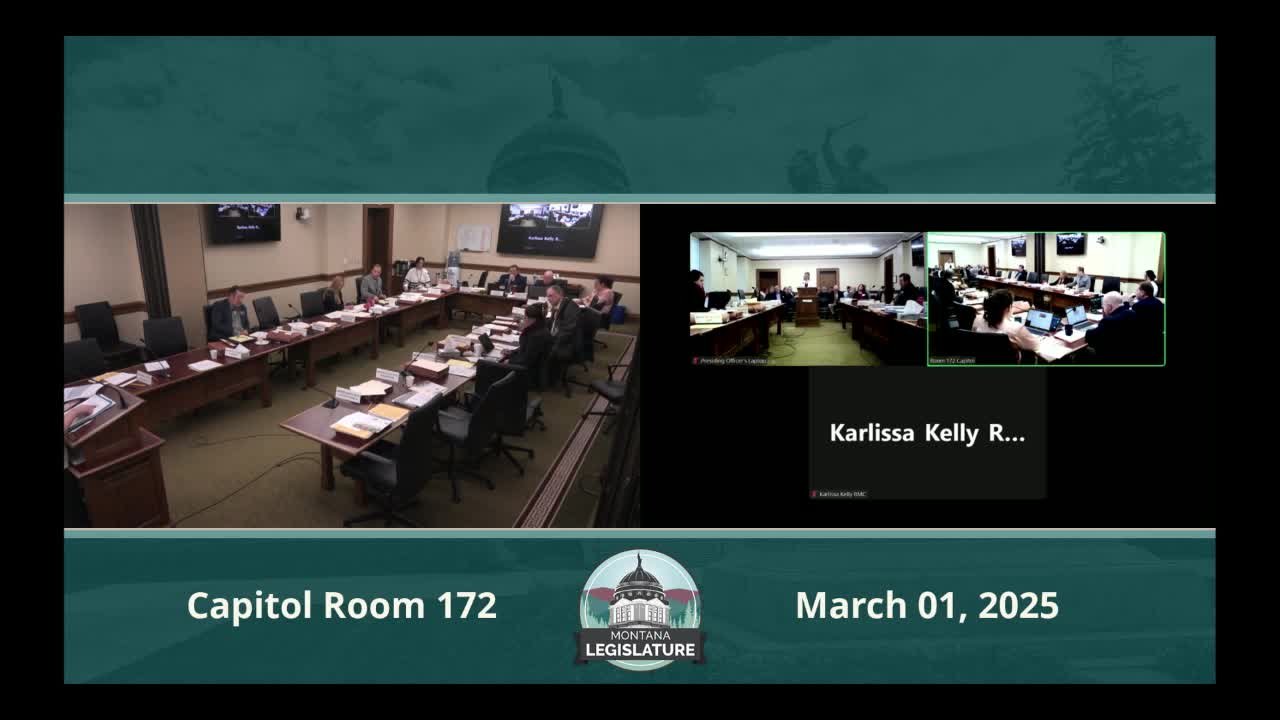
Bill would cap patient out‑of‑pocket ambulance bills and require insurer payments to protect rural EMS services

Bill to allow supervised speech‑aids in public schools advances amid debate over training and supervision
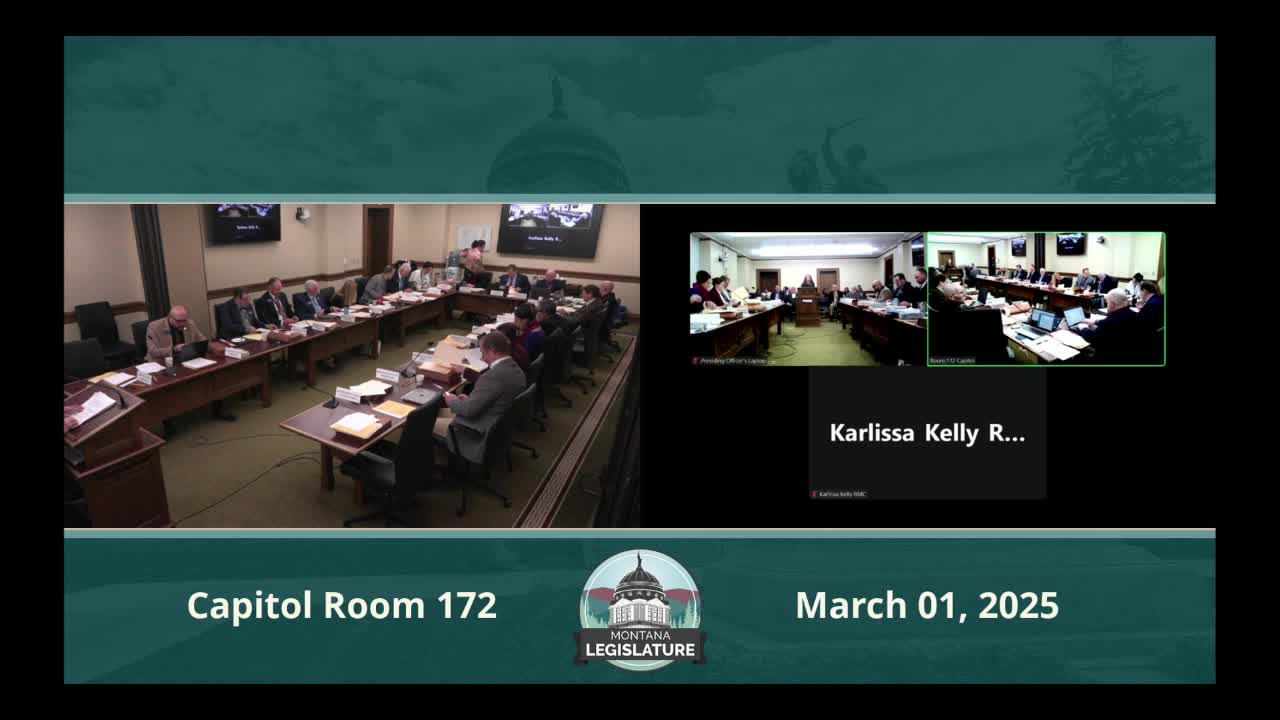
Bill would let child‑care centers opt out of accepting religious vaccine exemptions for infants and medically fragile children, with required public notice
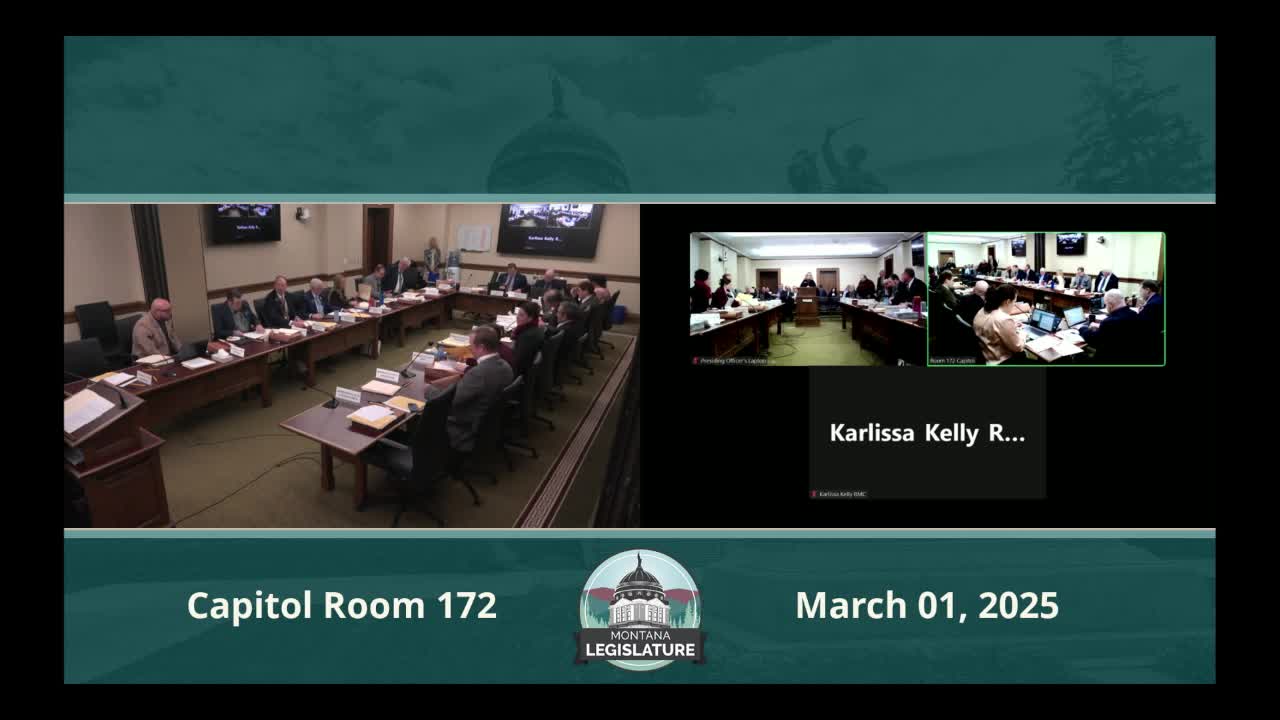
House bill 718 would create state Office of Reentry to coordinate services for justice-involved Montanans
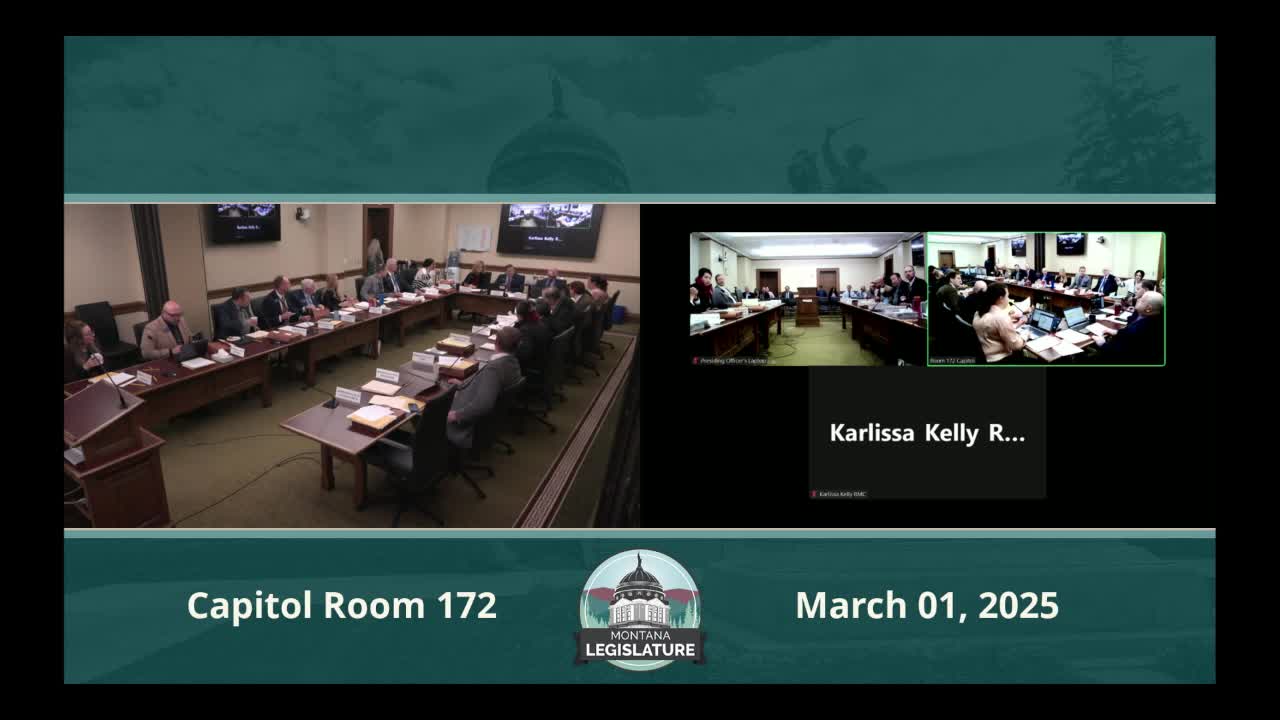
Committee rejects motion to take House Bill 362 off the table after roll call

Sponsor proposes 10% minimum premium for bail bonds after a fatal incident cited as rationale

